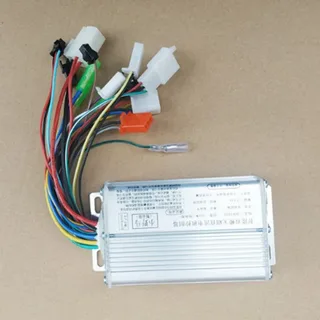Introduction
Intelligent Motor Controllers (IMCs) are advanced devices designed to monitor, control, and protect electric motors with enhanced efficiency and automation capabilities. Unlike traditional motor controllers, IMCs incorporate microprocessor-based technology, enabling features such as predictive maintenance, energy optimization, fault diagnostics, and real-time monitoring. These controllers are used across industries including manufacturing, oil & gas, water & wastewater, mining, power generation, and HVAC systems. As industries embrace digital transformation, IMCs play a crucial role in enhancing productivity, reducing downtime, and supporting sustainability goals.
Market Dynamics (Drivers, Challenges, Opportunities)
Drivers:
The growing emphasis on industrial automation, predictive maintenance, and energy efficiency is a major driver of IMC adoption. With industries increasingly adopting Industry 4.0 practices, IMCs are in high demand for their ability to integrate with IoT platforms and deliver real-time data insights. Rising global electricity consumption, coupled with the need to reduce energy waste, further drives their deployment. Additionally, IMCs improve operational reliability by preventing overloads, short circuits, and other motor-related failures, making them essential for mission-critical operations.
Challenges:
High initial investment and installation costs remain a barrier, especially for small and medium enterprises (SMEs). Integration with legacy systems can also be complex, requiring specialized expertise. Moreover, cybersecurity concerns in IoT-enabled controllers pose risks in critical infrastructure applications. Market growth is further restrained by a lack of awareness in developing regions, where industries still rely heavily on traditional motor control technologies.
Opportunities:
Rising demand for smart factories, energy-efficient solutions, and predictive maintenance systems presents strong opportunities for IMC manufacturers. Emerging economies, undergoing rapid industrialization, offer vast potential for market expansion. The increasing penetration of renewable energy projects, electric vehicles, and automated HVAC systems creates new application areas. Furthermore, the adoption of cloud-based monitoring and AI-powered analytics enhances the role of IMCs in achieving predictive performance and operational efficiency.
Market Segmentation
By Type: Low-voltage intelligent motor controllers, medium-voltage intelligent motor controllers, and high-voltage intelligent motor controllers.
By Application: Pumps, compressors, conveyors, fans & blowers, HVAC, and others.
By End-Use Industry: Oil & gas, water & wastewater, power generation, mining, manufacturing, chemicals, food & beverages, and automotive.
By Region: North America, Europe, Asia-Pacific, Latin America, and Middle East & Africa.
Regional Analysis
Asia-Pacific dominates the IMC market due to rapid industrialization, adoption of automation technologies, and expanding manufacturing and energy sectors in countries like China, India, and Japan. North America follows closely, driven by advanced industrial automation, focus on energy efficiency, and strong adoption in oil & gas and manufacturing industries. Europe benefits from strict energy regulations, smart manufacturing adoption, and renewable energy integration, particularly in Germany and the UK. Latin America is showing steady growth due to rising industrial investments in Brazil and Mexico, while Middle East & Africa are leveraging IMCs in oil & gas, utilities, and infrastructure development projects.
Key Trends
- Integration with IoT and Industry 4.0: IMCs are increasingly connected to industrial IoT systems, enabling predictive maintenance and data-driven decision-making.
- Energy efficiency focus: Companies are adopting IMCs to comply with global sustainability and energy efficiency regulations.
- Adoption in renewable energy and EVs: IMCs are being deployed in solar, wind, and EV charging infrastructure to optimize performance.
- AI and machine learning integration: Advanced IMCs now use AI algorithms for fault prediction and adaptive performance tuning.
- Cybersecurity measures: With IoT connectivity comes a growing emphasis on securing IMCs against cyber threats.
- Shift toward digital twin technology: IMCs are enabling virtual modeling of motor performance, allowing predictive analysis and performance optimization.
Future Outlook
The intelligent motor controller market is expected to experience robust growth over the next decade, supported by the accelerating shift toward smart factories, sustainable operations, and predictive maintenance strategies. Asia-Pacific will continue to lead, while North America and Europe will focus on innovation, digitalization, and energy efficiency. Integration with cloud computing, digital twins, and advanced analytics will further expand IMC capabilities. By bridging energy optimization with operational intelligence, IMCs will remain indispensable in the future of industrial automation and power management.
Conclusion
Intelligent motor controllers are transforming traditional motor management by combining protection, monitoring, and automation into a single platform. As industries prioritize efficiency, reliability, and sustainability, IMCs are becoming an essential element of modern industrial infrastructure. Despite challenges like high costs and integration complexities, the market is poised for growth due to rising adoption of automation, Industry 4.0, and smart energy solutions. With continuous technological advancements, IMCs will shape the future of intelligent and sustainable motor operations worldwide.
